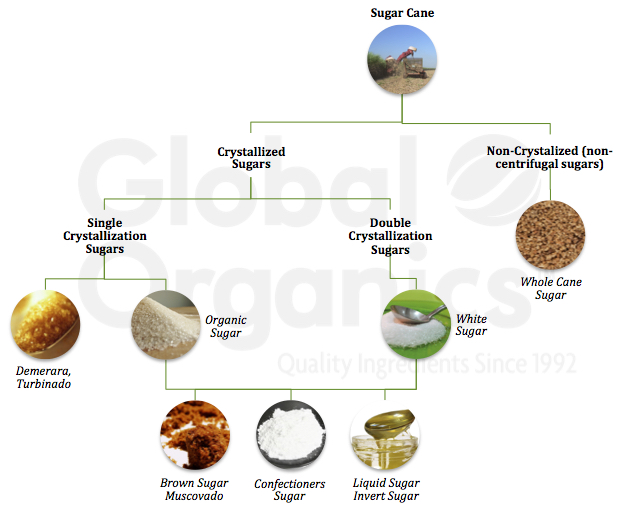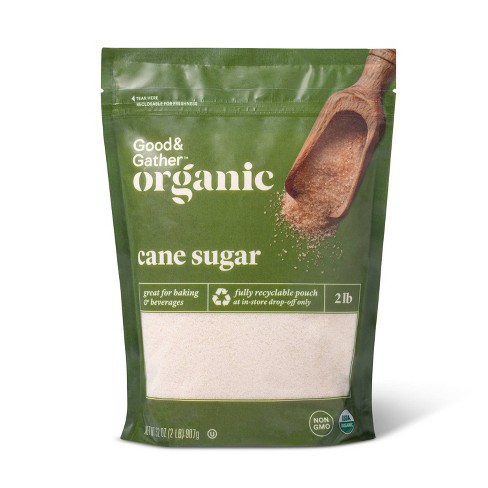Exploring the Global Impact of Sugar and Cane on Economy and Culture
Exploring the Global Impact of Sugar and Cane on Economy and Culture
Blog Article
Why Cane Sugar Processing Chemicals Are Important for Modern Sugar Refining
The function of walking cane sugar handling chemicals in modern-day sugar refining can not be overemphasized, as they are essential to boosting both the performance of removal and the overall quality of the last product. Agents such as phosphoric acid and certain flocculants are used to remove impurities, resulting in sugar that not only meets consumer assumptions but likewise adheres to industry standards.
Role of Processing Chemicals
The effectiveness of cane sugar handling hinges significantly on the critical application of handling chemicals. These chemicals play a pivotal duty in improving the performance and top quality of sugar extraction and refining. From the first stages of juice extraction to the last purification steps, handling chemicals facilitate various vital procedures.
In the removal stage, chemicals such as phosphoric acid and calcium hydroxide are utilized to optimize the explanation procedure, assisting to remove impurities and put on hold solids from the walking stick juice. This not just improves the return yet likewise ensures the quality of the final product. In addition, representatives like flocculants help in the fast settling of impurities, consequently enhancing the general process.
Turned on carbon and ion exchange resins serve to eliminate color and smell, guaranteeing that the polished sugar satisfies customer top quality standards. Thus, the precise selection and application of these chemicals are essential for accomplishing ideal outcomes in walking stick sugar handling.
Key Kinds of Chemicals
Walking cane sugar processing relies upon a selection of vital chemicals that assist in each stage of production. These chemicals play necessary duties in clarifying, whitening, and detoxifying the sugar extracted from cane.
One primary category of chemicals consists of flocculants, such as polyacrylamide, which help in the clarification process by promoting the aggregation and settling of pollutants. Additionally, calcium hydroxide is frequently utilized to reduce the effects of acidity and aid in the elimination of non-sugar parts.
Lightening representatives, such as activated carbon and sulfur dioxide, are used to decolorize the syrup, resulting in a clearer last product. These chemicals aid remove shade compounds that may influence the sugar's appearance and bankability.
Additionally, phosphoric acid works as a pH regulator during the processing stages, making sure ideal conditions for the chemical activities associated with sugar extraction and filtration.
Other essential representatives consist of edta (ethylenediaminetetraacetic acid), which chelates metal ions that might militarize unwanted reactions, and sodium hydroxide, which assists in pH control throughout the refining procedure. Collectively, these chemicals boost effectiveness and make sure a high-grade walking stick sugar product.
Advantages for Sugar High Quality
Commonly neglected, making use of certain processing chemicals substantially improves the overall high quality of cane sugar. These chemicals play an essential duty in refining procedures, making sure that the end product fulfills rigid market criteria for purity and preference.

Furthermore, processing chemicals help in achieving a regular granulation and texture, which are important for customer approval. By managing the condensation procedure, these chemicals make certain that the sugar crystals develop evenly, bring about an extra appealing item that dissolves well in numerous applications.
In addition, using these chemicals can enhance the life span of cane sugar by decreasing wetness absorption and microbial growth. Overall, the critical application of processing chemicals is crucial for delivering top quality cane sugar that meets customer assumptions and market needs.
Ecological Impact Considerations

Moreover, the energy-intensive nature of sugar refining, worsened by chemical use, often causes enhanced carbon discharges. This contributes to climate modification and increases worries relating to the sustainability of present refining methods. Furthermore, the sourcing of these chemicals may include methods that endanger biodiversity, such as monoculture farming, which decreases the durability of agricultural communities.

To mitigate these influences, sugar refiners are increasingly exploring lasting choices and adopting best techniques that decrease chemical usage. Executing rigorous ecological administration systems can help ensure that the refining procedure lines up with environmental criteria and advertises biodiversity. Eventually, a balanced strategy that focuses on both sugar top quality and ecological stewardship is crucial for the lasting feasibility of the sugar market.
Future Fads in Refining
As the sugar industry grapples with the ecological difficulties associated with typical refining techniques, ingenious strategies are emerging to improve both efficiency and sustainability. One substantial pattern is the adoption of green chemistry concepts, which focus on the use of safe, biodegradable processing chemicals. This shift not just reduces ecological impact but also addresses consumer need for cleaner production techniques.
An additional appealing advancement is the execution of advanced learn this here now filtering technologies, such as membrane separation like it and adsorption procedures. These strategies enhance the quality and quality of the sugar while lowering the volume of wastewater generated during refining. In addition, the integration of electronic modern technologies, including IoT and AI, is changing functional performance by enabling real-time tracking and anticipating maintenance, thus lessening source waste.
Additionally, making use of byproducts from sugar refining, such as bagasse and molasses, is obtaining traction. These materials can be converted into biofuels or value-added items, adding to a round economy within the sector. Jointly, these fads signal a change in the direction of even more lasting techniques that not just boost functional performance but likewise straighten with global sustainability objectives, guaranteeing the future feasibility of sugar refining.
Verdict
Cane sugar handling chemicals are crucial in modern-day sugar refining, significantly enhancing the efficiency and high quality of sugar extraction. The calculated use these chemicals not only improves the pureness and taste of the end product but also ensures constant condensation and structure. As the market progressively prioritizes sustainability, the fostering of environmentally-friendly handling agents is likely to form future patterns in refining, eventually resulting in higher quality items and prolonged shelf life for customers.

Inevitably, a well balanced method that prioritizes both sugar quality and environmental stewardship is crucial for the long-lasting stability of the sugar industry.
Walking stick sugar handling chemicals are crucial in modern sugar refining, dramatically enhancing the efficiency and high quality of sugar extraction.
Report this page